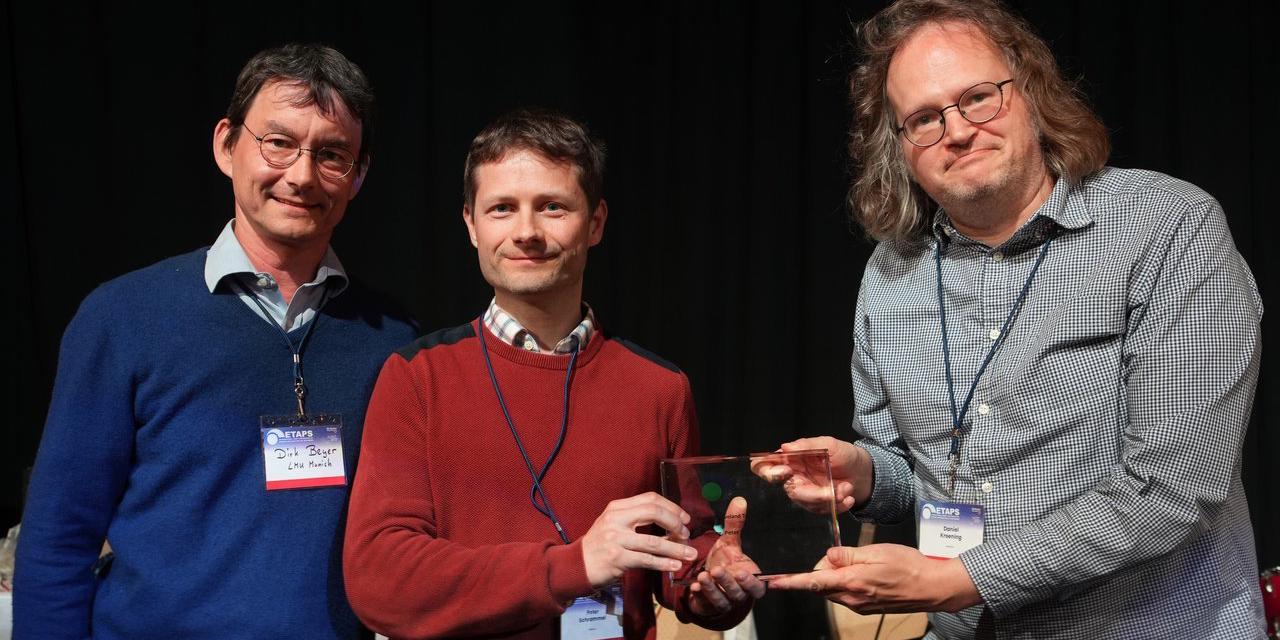
Building Resilience in Academia
by Elizabeth Polgreen — 19 June 2025
Topics: Interview
This blog is based on Eunsuk Kang’s talk at the ETAPS Mentoring Workshop and written up by Elizabeth Polgreen. Eunsuk is an associate professor at Carnegie Mellon University. Prior to joining CMU, he spent a year working on connected vehicles at Toyota and was a postdoctoral scholar on the NSF ExCAPE program. He did his PhD at MIT working with Daniel Jackson.
This blog post is on resilience. More specifically, it’s about how to build resilience for a career in academia.
According to the Merriam-Webster dictionary, resilience is an ability to recover from or adjust easily to misfortune or change. (It is also, “the capability of a strained body to recover its size and shape after deformation caused by especially compressive stress,” but we’ll assume that definition is less relevant to academia. If you are being physically squashed during your PhD, either you are doing a PhD in physics/material science and your experiments have gone horribly wrong, or you need to get a new PhD supervisor.)
PhD journeys are never linear, they have ups and downs, and if you aren’t resilient to those downs, it will be difficult to have an enjoyable time or a long-term career in academia. In this blog, I’m going to tell you the story of my PhD, as plotted in the graph below (EP: Eunsuk assures me that he didn’t spend quite so much time below the x-axis of zero confidence and zero happiness as that graph illustrates), and talk about the things that brought me down, and how I learned to be more resilient to those things.

My PhD started with some success; my advisor suggested I work on some projects, I wrote some papers based on those results, and they got accepted. Great! I was very happy, and I felt very proud of how things were going. Then, after a couple of papers, my advisor gave me the freedom to explore what I should work on next.
That’s where the first downward point in that graph occurs. Up until that point, I’d been told or given ideas about what I should do, and now I had to come up with ideas by myself. That itself wasn’t the problem. The problem is that coming up with ideas takes time, and whilst I was sitting in my office looking for interesting problems, I could see all my peers around me making more progress. This brings us to the first downer: comparison.
Self-imposed peer comparison
As Roosevelt said, “Comparison is the thief of joy.” Students frequently find themselves comparing themselves to their peers, comparing the number of papers they’ve each written, the number of hours they are working, and how “cool” their research topic is. You should not do this. Whatever beans you like to count, self-imposed peer comparison never leads to productive outcomes.
I cannot tell you how not to compare yourself to your peers, but I can tell you why this is a pointless exercise:
- First, you are (probably) not comparing apples to apples. Papers in different research areas take different amounts of time to produce. (We don’t condone using the ICLR points mentioned in this blog as a serious metric, but it does illustrate our point quite well: it is not meaningful to compare numbers of papers across different research areas.) Different problems take different amounts of time to solve, so papers are a poor metric for progress.
- Second, everyone has their own different, and unique career trajectory. Everyone has their own strengths and weaknesses, so perhaps your office mate is very good at theory, but you are really good at building tools or other more technical aspects. Because of this, even within the same research area, you will find that everyone will take a different trajectory through the PhD.
If you are worrying about your progress, don’t look to peer comparison for reassurance, talk to your advisors!
Eventually, I found something interesting and cool to work on using formal methods to automate small, security-critical end-user tasks like configuring access control policies. I was invited to give a talk at a security seminar on this work, which was very exciting for me. I worked hard on this talk, and I was ready to go, and then I realised a few days before that there was another talk scheduled at the same time as mine, being given by a researcher from a well-known company. Initially, I was a little worried because I thought this might take away some of the audience for my talk.
It was far worse than I expected! Precisely three people showed up to my talk: my advisor; a friend of mine who worked in a different area but showed up to be supportive; and someone who I’d never seen before.
Which brings us to the second thing that brings us down. Lack of validation.
Lack of validation
People are social beings, and it is normal to thrive on external validation. Giving a talk to an empty lecture theatre is definitely not very validating!
But there are a few things you should remember before you let a lack of external validation completely crush your soul: Most people are preoccupied and busy with their own research. It’s probably not that they dislike your research; they just haven’t even taken the time to think about it. And not everyone will like your research, and that’s ok too.
There will be researchers out there with similar interests to you, so if you are lacking external validation, you should proactively seek them out! Go to conferences, go to workshops, talk to people! Small workshops are great places to find people who are into your research area.
The other thing to bear in mind is that it can take years for an idea to be found and adopted, so you should be persistent. Of the three people who showed up, the person that I had never seen was a researcher from a prominent industry lab, and the topic I was working on happened to be a solution to their problem, and this talk led to a joint research proposal! It can be hard to find the people who like your research, but they are out there somewhere, and you may run into them eventually if you keep trying.
Eventually, I bounced back, and after I worked more on this idea, I felt ready to publish, so I submitted a paper. Which, of course, was rejected. Which was fair, there were some good suggestions from the reviewers, so I resubmitted it. And it got rejected again. So I improved it, submitted again, and it got rejected again!
This is not an uncommon experience for PhD students, and criticism and rejection can really bring you down.

Criticism and Rejection
Rejections are part of life in academia. Many papers are rejected multiple times and, often, the feedback you get in reviews can be far from helpful. To be resilient to this is tricky, but I’d suggest you try to remember the following:
- Every reviewer has their own bias and perspective. Scientific evaluation is not 100% objective, and some reviewers will be just negative about certain types of work. This comes back to what we mentioned before; not everyone has to like your research.
- Extract the parts of the criticism that are useful for improving your work. Despite the good intentions of reviewers, it is not practical to implement all their suggestions, and, if you were to do that, you may end up with a totally different (and not necessarily better) paper. There are, however, some fantastic reviewers in our community, though, who will provide amazingly useful feedback.
- Don’t take the negative comments personally. Reviewers don’t see your face, and reviewers are often phrased less carefully than they would be if we were giving the feedback directly to the authors.
- You should, however, take the positive comments to heart and be proud and take credit for your work!
The end of the story is that the paper did get accepted, and it received a distinguished paper award at FSE.
The final thing to say is, whilst this blog was about how you build resilience against the things that can bring you down in academia, it would be nicer for everyone if these things were rarer. To that end, we should all strive to build supportive communities in academia. Be nice to each other, especially when writing reviews. Write constructive reviews and ask constructive questions at conferences. Be honest about your own challenges and listen to others when they share their own. Mentor and encourage younger students when you get a chance.
Science is a collective effort, not a competition!


